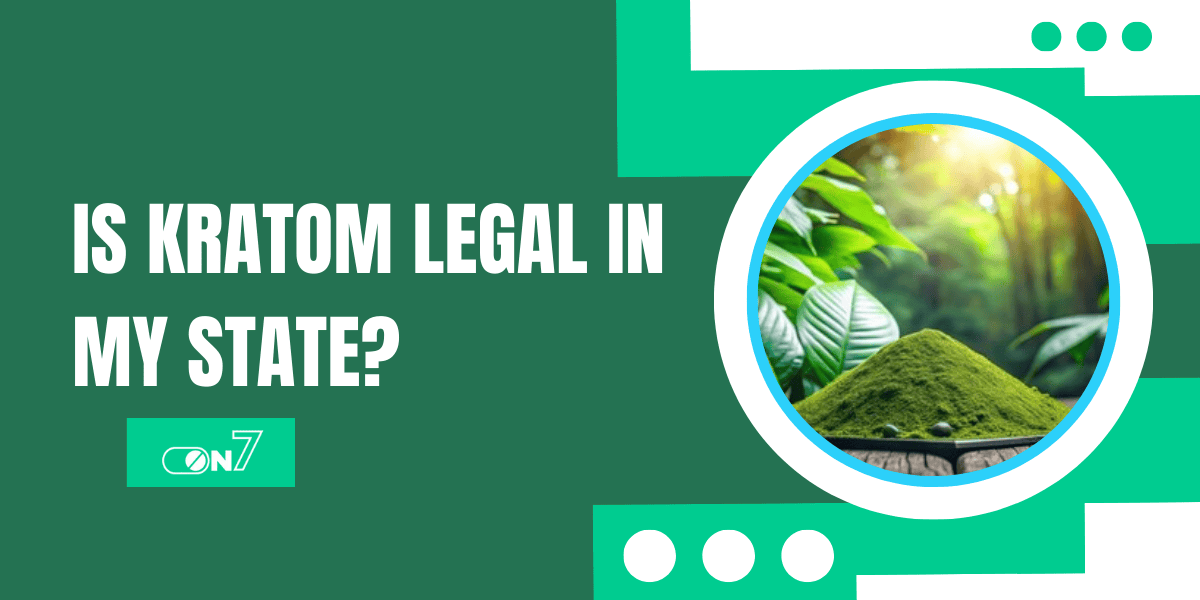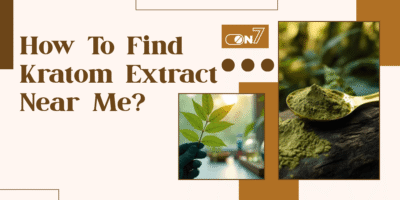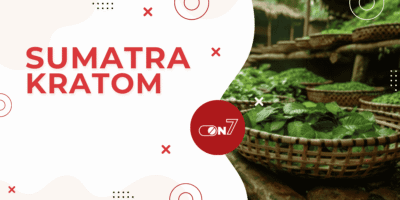Studies show that Kratom supplements produced from Mitragyna speciosa tree leaves have become increasingly popular because they provide pain relief as well as mood lifts and boost energy levels. However, the legality of kratom varies significantly across the United States, leading many to ask: Is kratom legal in my state?
In this comprehensive guide, we will explore kratom legality by state, discuss the implications of these laws, and provide insights into how to navigate this complex landscape.
Is Kratom Legal In My State?
Most areas in the United States permit the use of kratom products. The legal character of kratom remains uncertain. Let’s start by laying some groundwork.
People extract Kratom as a herbal product from Southeast Asian Mitragyna speciosa trees. Among its various traditional healing purposes, healers used kratom for concentration and task performance enhancement while also helping patients achieve restful sleep and manage stress and pain to improve their quality of life.
Traditional Eastern herbal medicine has utilized this extract as its main component for multiple centuries.
A span of hundreds of years later, kratom undertook its western migration. The United States discovered kratom during the 1990s and it gained widespread recognition a decade later. People heard about its potential healing properties and started exploring it as an alternative to mainstream meds.
Kratom leaves release two alkaloid compounds that produce calmness and lift users’ moods. Kratom alkaloids attach themselves to brain receptors that opioid drugs use for their binding sites. The independent presence of these alkaloids proved harmless yet provoked an overwhelming spread of misinterpretations.
Kratom legality by state
The FDA tried to classify kratom as a Schedule I controlled substance several times. Federal legislation could outlaw both the sale and private ownership of kratom throughout the US. The scheduling attempts by the FDA were countered by user advocate groups combined with individual objections, enabling the scheduling proposal to fail.
The FDA must create proper regulatory measures for kratom because banning it outright proved unfeasible. Current regulations regarding kratom at the national level have not been implemented yet.
The US permits federal kratom rules, yet each state applies its own rules to decide its legality on a case-by-case basis. States have permission to create individual rules regarding this substance.
The table below offers a brief insight into each state’s current law.
| State | Legal Status | Details |
| Alabama | Banned | Kratom alkaloids are banned. |
| Alaska | Unregulated | No kratom regulations. |
| Arizona | Regulated | Kratom is regulated under the KCPA. |
| Arkansas | Banned | Kratom products are banned. |
| California | Mostly legal | Kratom is banned in San Diego but is legal elsewhere. |
| Colorado | Mostly legal | Kratom is banned in Parker and Monument and restricted in Denver. |
| Connecticut | Unregulated | No kratom regulations. |
| Delaware | Unregulated | No kratom regulations. |
| Florida | Unregulated | No kratom regulations. |
| Georgia | Regulated | Kratom is regulated under the KCPA. |
| Hawaii | Unregulated | No kratom regulations. |
| Idaho | Unregulated | No kratom regulations. |
| Illinois | Mostly legal | Kratom is banned in Jerseyville, Alton, and Edwardsville. |
| Indiana | Banned | All kratom products are banned. |
| Iowa | Unregulated | No kratom regulations. |
| Kansas | Unregulated | No kratom regulations. |
| Kentucky | Unregulated | No kratom regulations. |
| Louisiana | Unregulated | No kratom regulations. |
| Maine | Unregulated | No kratom regulations. |
| Maryland | Unregulated | No kratom regulations. |
| Massachusetts | Unregulated | No kratom regulations. |
| Michigan | Unregulated | No kratom regulations. |
| Minnesota | Unregulated | No kratom regulations. |
| Mississippi | Unregulated | No kratom regulations. |
| Missouri | Unregulated | No kratom regulations. |
| Montana | Unregulated | No kratom regulations. |
| Nebraska | Unregulated | No kratom regulations. |
| Nevada | Regulated | Kratom is regulated under the KCPA. |
| New Hampshire | Partially regulated | Kratom is unavailable to minors. |
| New Jersey | Unregulated | No kratom regulations. |
| New Mexico | Unregulated | No kratom regulations. |
| New York | Unregulated | No kratom regulations. |
| North Carolina | Unregulated | Kratom is unavailable to minors. |
| North Dakota | Unregulated | There are no regulations on kratom. |
| Ohio | Partially regulated | Only kratom powder is legal. |
| Oklahoma | Unregulated | No kratom regulations. |
| Oregon | Unregulated | No kratom regulations. |
| Pennsylvania | Unregulated | No kratom regulations. |
| Rhode Island | Banned | Kratom alkaloids are banned. |
| South Carolina | Partially regulated | Kratom is unavailable to minors. |
| South Dakota | Unregulated | No kratom regulations. |
| Tennessee | Partially regulated | Kratom is unavailable to minors. |
| Texas | Unregulated | No kratom regulations. |
| Utah | Regulated | Kratom is regulated under the KCPA. |
| Vermont | Banned | Kratom alkaloids are banned. |
| Virginia | Unregulated | No kratom regulations. |
| Washington | Unregulated | No kratom regulations. |
| West Virginia | Unregulated | No kratom regulations. |
| Wisconsin | Banned | All kratom products are banned. |
| Wyoming | Unregulated | No kratom regulations. |
States where kratom is legal
A majority of American states remain neutral regarding kratom legalization. Kratom herb sales are open to the general public according to the current practical policy.
This situation isn’t optimal, though. Current regulatory weaknesses enable dishonest sellers to release unsafe products in the market. Unethical practices make kratom potentially dangerous and increase its abuse potential.
Actual legality will only come when states recognize kratom, grant it official status, and introduce regulations.
Some state governments have already done that by introducing KCPAs:
- Arizona: Supporters of kratom in Arizona stopped the state from banning it while also creating ways to regulate its use. It passed a KCPA in 2019, ensuring safe products for adult shoppers.
- Georgia: The state of Georgia maintains an active KCPA, although it experienced a period of kratom panic earlier. All products must display ingredients and disclaimers, and anybody over 18 can get them.
- Nevada: Legislation establishing KCPA as a law enforceable by punishment was passed in Nevada in 2016. Anybody over the age of 18 may purchase kratom from licensed manufacturers.
- Utah: The 2019 KCPA derived by Utah halted all sales of kratom, which was tainted with contaminants. In 2020, it introduced an additional bill to license manufacturers and increase the plant’s accessibility.
The enforcement of herbaceous marijuana regulations stands as a single option for states where KCPAs are absent. The states of New Hampshire, North Carolina, South Carolina, and Tennessee each have statutes prohibiting the purchase or possession of marijuana. Ohio lets shoppers get powdered kratom only, as capsules are easier to contaminate.
The idea behind these regulations is that citizens should be free to make their own decisions. The government ensures that those who want kratom can get it from safe and reliable sources.
States where kratom is illegal
This research focused on states that implemented regulatory and legislative frameworks, and now we will examine their opposite. Where is kratom illegal?
Kratom is banned in the US in these states for the following reasons:
- Alabama: The Alabama state government outlawed both components of kratom when it passed its anti-kratom law in 2016. The government inaccurately considers them synthetic substances, so there’s a basis for contesting the bill.
- Arkansas: Arkansas normalized the ban on kratom after three suspected deaths in 2017. There haven’t been notable proposed changes.
- Indiana: The Indiana government declared kratom a controlled substance under Schedule I when it enforced the ban in 2014. The government suggested labeling the alkaloids as synthetic substances, a clear example of misinformation.
- Rhode Island: Kratom alkaloids became illegal in Rhode Island in 2017. There was recently a bill that suggested regulation, so we’re optimistic.
- Vermont: Under Vermont laws, kratom alkaloids are classified as hallucinogenic substances that add synthetic cannabinoids to their list. Since the plant is neither synthetic nor a cannabinoid, experts might challenge this classification.
- Wisconsin: According to Wisconsin officials, kratom holds risk levels comparable to those of opiates. The public perception is in line with this demonization campaign.
Governments look at plants through a restrictive understanding. They assume kratom will be just as addictive as opiates and contribute to the overwhelming opioid crisis. From this assumption, they conclude that a ban would reduce addiction rates.
Under real-world conditions, kratom exhibits addictive properties however these effects remain substantially milder than pharmaceutical medicines and illegal substances.
What is KCPA? And the states where kratom is protected
KCPA stands for Kratom Consumer Protection Act, which protects the regulation, sale, and labeling of kratom products in all forms (capsules, tablets, extracts, powder, etc). It is also to ensure the quality of the kratom that consumers receive.
In some states, kratom is protected by KCPA, including Arizona, Oklahoma, Oregon, Colorado, Utah, Virginia, Georgia, Florida, Nevada, and West Virginia.
Kratom and the FDA
The FDA doesn’t approve any kratom products due to its main ingredients, mitragynine and 7-OH-mitragynine which have the potential for abuse and addiction. It can also pose some serious effects, including liver damage, confusion of the mind, constipation, and others. With extreme use, it can cause seizures.
However, all states have their own rules and regulations related to the use of kratom. You can check state health and law enforcement agencies to better understand applicable laws.
For more details about the FDA and Kratom: Read Here.
What is the International Status of Kratom?
1. North America:
Kratom is illegal for human use in Canada, however, it’s mainly marketed as incense. The laws in Canada are quite similar to Denver and Colorado.
In North and Central Latin American countries, kratom is not restricted or banned. They also don’t have a legal status for kratom.
2. South America:
Most South American countries have no laws about kratom, nor is it prohibited or banned. In Brazil, you can easily find kratom in stores and gas stations.
3. South Africa:
Most people in Africa don’t recognize kratom, so the legality of kratom is not clear. They don’t have any regulations or laws related to kratom. The governments in South Africa don’t prohibit kratom and don’t pose any medical on this botanical herb.
4. Asia:
In Asia, the status of kratom varies from country to country. Here is a list of countries that have explicitly banned kratom;
- Israel
- Japan
- Myanmar
- Malaysia
- Singapore
- South Korea
- Vietnam
In China, kratom’s legality is uncertain, except in Hong Kong, where people highly consume kratom and it is also labeled as legal.
Thailand was one of the first countries that ban the production and growth of kratom in 1943, but a lot has changed since then. In 2018, the regulations changed as the Narcotics Act of 1979 considered the potential medicinal use of kratom.
5. Australia & New Zealand:
Australia has an apparent policy regarding kratom, it is banned in all forms.
In New Zealand, Kratom is classified as a Schedule 1 substance, making its import and export illegal. However, it can still be prescribed locally.
6. Europe:
In some European countries, kratom is banned, like Finland, Lithuania, Poland, Denmark, Latvia, Romania, Sweden, and Russia.
Best place to buy Kratom Online
ON7 is the most reliable source of kratom tablets. They are known for their high-quality ingredients, which are lab-tested and proven to provide the maximum and optimal results.
They are committed to delivering naturally sourced kratom for three different purposes: focus, relief, and energy. These tablets are pressed with a high-pressure machine, so it does not have added fillers or chemicals.
They have 3 types of kratom tablets (Relief, Energy, and Focus), with 20mg per tablet in a pack of 6 servings.
Here is the product range of ON7:
1. Relief Tablets
The ON7 Relief tablets contain Mitragynine Pseudoindoxyl, which is great for soothing and pain relief.
2. Energy Tablets
The ON7 Energy tablets with 7-hydroxymitragynine (a kratom alkaloid) are good in providing a boost to the energy level, and helping improve mood.
3. Focus Tablets
The ON7 Focus tablets offer a blend of 7-Hydroxymitragynine and pseudo to help improve focus and nail daily tasks.
Bottom Line
As you navigate the complexities of kratom legality across different states, it’s essential to stay informed about local laws and regulations. While kratom offers potential benefits for many users, understanding whether it is legal in your state is crucial for ensuring compliance with local laws and making safe choices regarding its use.
If you’re considering incorporating kratom into your wellness routine, take the time to research your state’s stance on this herbal supplement thoroughly. Awareness of your legal rights will empower you to make informed decisions while advocating for responsible legislation that supports safe access to natural remedies like kratom.
For those who find themselves in a state where kratom is legal, remember always to purchase from reputable vendors like ON7, who prioritize quality and safety. This will help ensure that you receive a product that meets your expectations while adhering to local regulations.
If you have done proper research and are looking for kratom online, try ON7 kratom tablets that are available in 3 types (relief, energy, focus).
You May Also Like:






